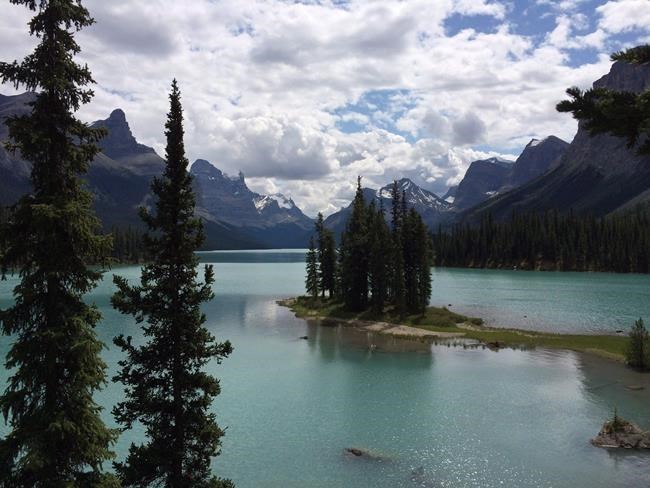Parks Canada and two First Nations have signed an agreement that points to a stronger Indigenous voice in national parks management and opens the door to harvesting in western Alberta's Jasper National Park.
"We want to be part of decision-making in the park," Chief George Lampreau, of the Simpcw First Nation, said from Barriere, B.C.Â
Parks Canada spokesman Mark Young said the agreement between Parks Canada, the Simpcw and Alberta's Stoney Nation is part of a larger move within the agency to reopen parks lands to First Nations and restore their influence on how they're managed.
"From coast to coast to coast, it's everywhere," he said.Â
"The first thing we did (when parks were created) was remove Indigenous people from the landscape. We totally took that thinking out of our space.
"We're going to move toward greater management collaboration with the Indigenous groups we work with."
It also marks the renewal of an age-old treaty between the Simpcw and the Stoneys that bound both nations to share the resources of Jasper's peaks, broad valleys and glacier-fed rivers. The deal was signed in 1872, but Stoney spokesman Barry Wesley said the agreement to harvest together in peace long predates the introduction of writing.
"We wanted to let the world know these treaties exist between nations," he said. "It's a living spirit."
The deal will be marked with a hunt. The First Nations are hoping to take six deer, four elk and two sheep from within the park for a community feast.Â
It will be the first time since 2017 that First Nations have hunted in Jasper, when they did so under an agreement with Parks Canada. Other national parks and park reserves also allow Indigenous harvesting, Young said.
An area will be closed during the hunt to ensure public safety.
"We don't know if it will be an annual thing," said Young. "There's some work we have to do.
"What does it mean to incorporate a level of Indigenous hunting? What's sustainable?" Â
Lampreau is looking forward to a greater role in park management. He blames Parks Canada for the near-extirpation of caribou from Jasper.
"(Parks) is building up to 2.4 million (visitors) now and you've (got) animals going extinct. You're not managing properly.
"Maybe we as First Nations decide what the carrying capacity is for that park."
The deal will be marked Oct. 28 with a ceremony in the park and a community feast of animals taken within it.Â
"We're just doing what we were stopped from doing," said Wesley. "Now we're back.
"Us doing harvesting doesn't mean we're going to be minimizing the animals. They're spirit, too.
"They're going to be invited to the ceremony."
This report by The Canadian Press was first published Oct. 17, 2023.
Bob Weber, The Canadian Press

